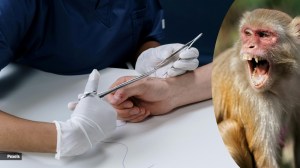POTA review panel can’t usurp judicial powers: Gujarat to SC
The Gujarat Government on Thursday came out strongly in the Supreme Court against a provision in Prevention...

The Gujarat Government on Thursday came out strongly in the Supreme Court against a provision in Prevention of Terrorism Act (POTA) that empowers the Central POTA Review Committee to determine the innocence of the accused, claiming that the said provision allows the Executive to usurp judicial powers.
Appearing before a three-member Bench, headed by Chief Justice K G Balakrishnan, senior advocate Arun Jaitley, appearing for Gujarat Government, lamented how the scheme prepared by the Act completely alters the character of both criminal law investigation and determination of innocence or otherwise of a person charged under criminal law. He assailed Section 2 sub-section (3) of POTA, brought out by way of an amendment in Section 60 of the principal Act, which held that the Central POTA Review Committee’s findings were to be binding on the courts whether it had taken cognizance of the offence or not in cases pending before it.
The existing criminal law system, be it during investigation or during trial, has consistently tried to be free of any influence from the Executive. “The entire architecture of the criminal justice system is now sought to be demolished by Section 3,” contended Jaitley, who began his arguments on Thursday on an appeal filed by seven of the accused in the 2002 Gujarat riots, seeking bail.
Jaitley contended that a decision by the Central POTA Review Committee in 2005 has ruled that none of the alleged offences in the Godhra train burning case warranted invoking the draconian law. Hence, his clients too are entitled to be released on bail, he told the Bench, also comprising Justices R V Raveendran and Dalveer Bhandari.
The composition of the Review Committee does not have the trappings of a judicial authority as the chairman is a retired judge, he said. He recalled how preference was given to serving judges over retired judges when the court revised the scheme of fast-track courts.
“This Committee, under any circumstance, cannot be clothed with a judicial character,” he submitted, adding that the power to determine innocence, prime facie or subsequent to filing the report under IPC, is a judicial function and not an executive function.
“This usurpation of judicial function by the Executive is a violation of the basic feature of Constitution,” he said.






- 01
- 02
- 03
- 04
- 05

























